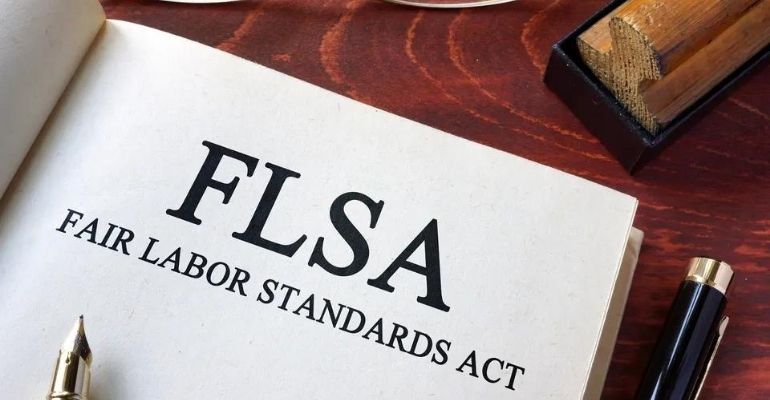
Can I Sue My Employer for Not Paying Me Overtime? What You Need to Know
The short answer is: YES.
Don’t work for free for another second.
If you are not being paid for overtime by your employer it is critical that you contact an attorney immediately to protect your rights, and to ensure you recover the hard-earned money your employer might be withholding from you.
Every day you wait to contact a lawyer about your lawsuit costs you money and may bar part – or even all – of any potential recovery to which you may be entitled.
Not Being Paid for Overtime? Here’s What You Can Do.
Leveling the Overtime Playing Field With FLSA
The Fair Labor Standards Act, also known by its abbreviated title – the “FLSA” – is a powerful federal law that may be used as a weapon by employees to level the playing field against an employer who refuses to comply with the law.
Congress enacted the FLSA in 1938 to protect the rights of workers throughout this country. Generally speaking, the FLSA requires employers to pay employees at least minimum wage for all hours worked, and time-and-a-half for hours worked in excess of forty during a given workweek.
Who Can Recover Unpaid Overtime?
The FLSA does have exceptions, also known as “exemptions”.
For example, professional employees who are paid salaries and meet other criteria are not eligible for overtime pay. Other employees who may be exempt include:
- Independent contractors
- Seasonal workers
- Volunteers
An employee who brings a successful FLSA claim is entitled to recover back pay for all unpaid overtime for a period of either two or three years before the lawsuit was filed, as well as attorneys’ fees and costs.
Employees may also, in certain cases, recover double the amount of unpaid overtime owed, commonly referred to as “liquidated damages.”
3 Common Unpaid Overtime FLSA Violations
What are some of the most common FLSA violations?
-
- Working “off the clock”
Time spent working “off-the-clock” is one of the most common FLSA violations today.
For example, an employee may decide to take office work home with him to ensure he is caught up after a busy week.
Or, an employee may opt to work through his or her lunch break despite the fact that they are either clocked out, or the employer automatically deducts lunch breaks from paychecks.
Employers must pay non-exempt employees for time worked “off-the-clock”, including overtime pay.
-
- Misclassification
Misclassification is another common FLSA overtime provision violation.
Employers will sometimes convince their employees that because they are paid a salary they are not eligible for overtime hours. In many cases the employer is wrong.
The only employees not eligible for overtime pay are those who fall into certain categories that Congress mandated as exempt from overtime pay.
The best way to determine whether you are exempt, or not, is to contact one of our attorneys for a free “exemption analysis.”
-
- “Comp” or “On Call” time
Employers also frequently violate the FLSA through the use of “comp time”, and “on-call” time.
Under the FLSA private employers may not use “comp time”, i.e., giving an employee an hour off of work on another day for hours worked in excess of forty. Such “comp time” policies violate the FLSA because they prevent employees from receiving an overtime premium for working more than forty hours in a given week.
Similarly, time spent working “on-call” for an employer may also be compensable if an employee’s movements are restrained due to the need to remain available to answer any “on call” requests made by the employer or customers of the employer.
Your Employer Can’t Fire You For Pursuing Unpaid Overtime
Fortunately, one of the FLSA’s strongest components is its anti-retaliation provision.
This provision forbids employers from taking any kind of “adverse” employment action against any employee, former or current, who has either complained about the employer’s FLSA violations, or even filed a lawsuit against the employer while the employee is still employed.
In other words, you don’t have to quit your job to file a lawsuit against your employer because the FLSA prohibits employers from firing people under the FLSA (although some employers may choose to ignore the law and do so anyway).
If you file a lawsuit against your current employer and you do lose your job as a result, you may have an additional claim against your employer for retaliation. Such claims have additional remedies available to employees, including compensatory damages.
If you have any questions about a potential overtime claim against your current employer, please call Wenzel Fenton Cabassa, P.A. today.
Please Note: At the time this article was written, the information contained within it was current based on the prevailing law at the time. Laws and precedents are subject to change, so this information may not be up to date. Always speak with a law firm regarding any legal situation to get the most current information available.








